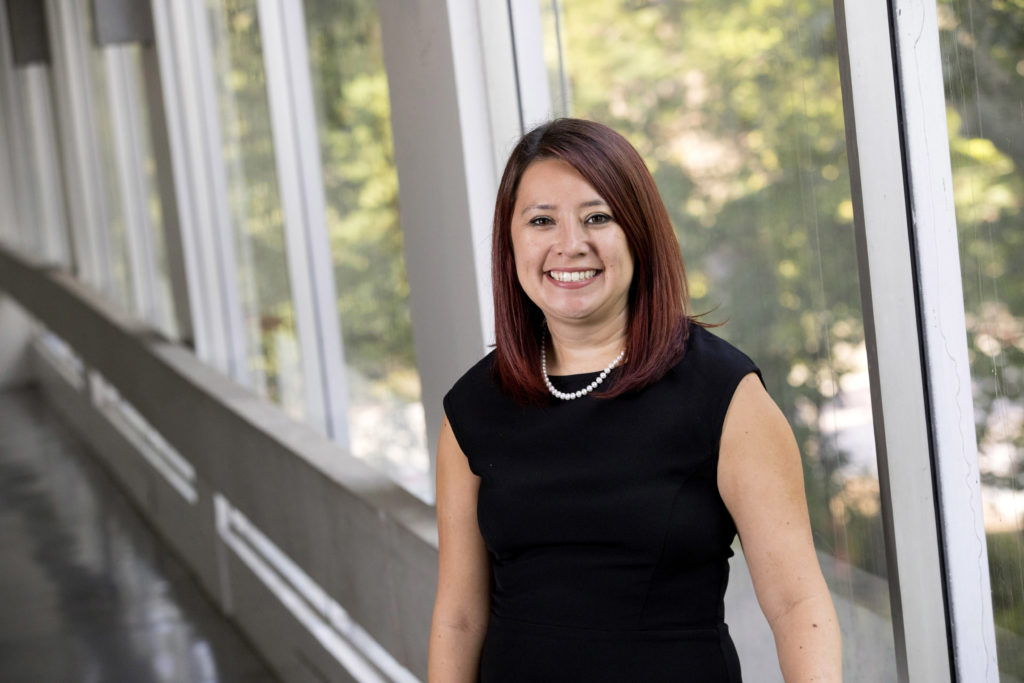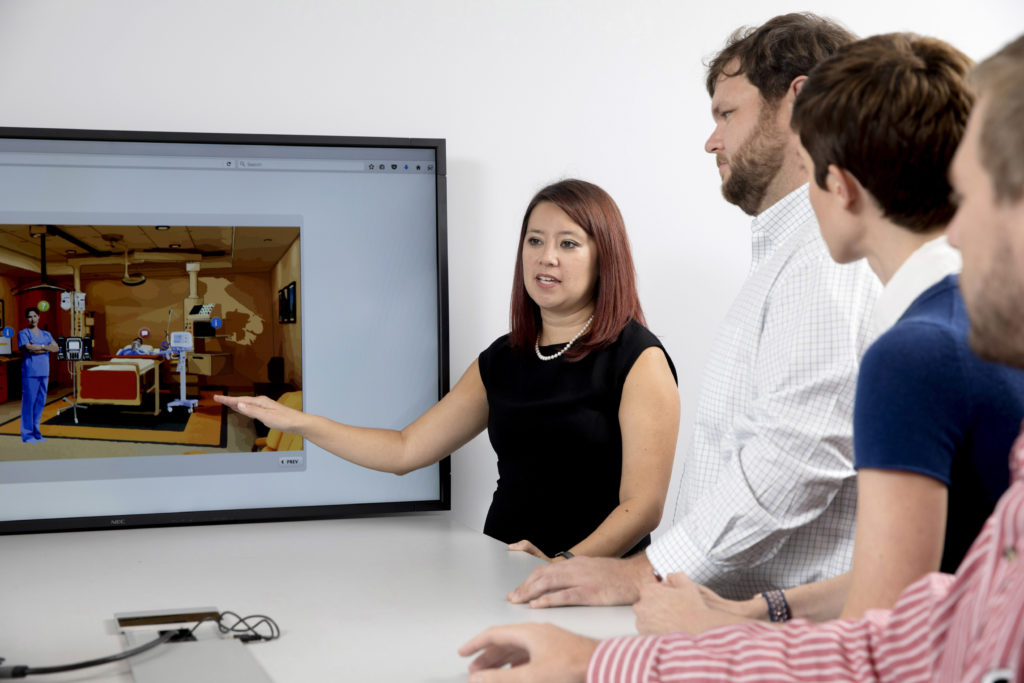Trisha Branan, clinical associate professor in the College of Pharmacy, uses virtual patient cases in her classes that enable students to learn in an interactive environment that fosters vital critical thinking skills.
Where did you earn degrees and what are your current responsibilities at UGA?
I earned my Doctor of Pharmacy degree from the University of Georgia College of Pharmacy in 2006. After graduation, I completed a postgraduate year one pharmacy residency at the Medical College of Georgia (now Augusta University) and a postgraduate year two critical care pharmacy residency at the University of Virginia.
I am a clinical associate professor in the College of Pharmacy and maintain a clinical practice site in the Intensive Care Unit at Piedmont Athens Regional Medical Center.
When did you come to UGA and what brought you here?
I came to UGA in 2014 after working as a critical care clinical hospital pharmacist in Augusta for six years. While in Augusta, I served as an adjunct faculty member, giving a few didactic lectures and precepting pharmacy students and residents. I have always enjoyed teaching and mentoring students. I hadn’t been actively searching for a new position when this position opened, but the chance to be able to interact with students across all four years of the curriculum at my alma mater was a dream opportunity.
What are your favorite courses and why?
I enjoy teaching in all of the courses I teach, but if I had to choose a favorite it would be the PHRM 5370 “Critical Care Pharmacy” elective course offered during the third year of the curriculum. For most of our students, the intensive care unit is an unfamiliar environment, so it can be challenging to bring in the real-world context of patient care into the classroom setting. My course co-coordinator, Anthony Hawkins, and I have been fortunate to receive internal grant funding twice that allowed us to partner with our amazingly talented instructional design and technology staff to create some virtual patient cases. Students are able to learn in this interactive, virtual environment that brings these traditional paper cases to life. In this course, we are able to focus less on “getting the right answers” and focus more on developing critical thinking and how to manage real patient care scenarios that may not have a black-or-white answer.
What are some highlights of your career at UGA?
I was honored to receive the UGA Creative Teaching Award in 2017 for my work in the PHRM 5370 “Critical Care Pharmacy” elective course. Recently, I was elected president of the Georgia Society of Health-System Pharmacists.
How do you describe the scope and impact of your research or scholarship to people outside of your field?
I am fortunate to be a part of the University of Georgia Critical Care Collaborative, which is composed of clinical faculty members across all of our clinical campuses at the College of Pharmacy who collaborate to increase critical care research and education across the state. As part of this group, I have two main areas of research. The first is in critical care pharmacotherapy. Practicing evidence-based medicine can be challenging in any health care environment, but it can be especially difficult in critical care. Having practiced in a critical care environment for over 10 years, I have witnessed the many practice advances and changes that have been born through research. Being able to contribute to the body of evidence that can help guide treatment recommendations in such a dynamic environment is rewarding. The second area of research I am passionate about is within the scholarship of teaching and learning realm. I love to find innovative and creative ways to deliver content within the confines of the classroom, and I also am committed to figuring out if these techniques positively impact student learning.
How does your research or scholarship inspire your teaching, and vice versa?
My teaching and research areas are intertwined. One drives the other, and vice versa. Specifically within critical care, I enjoy giving students the history of how practice has changed because of new research. Even when I am teaching them concepts based on current recommendations, I can share with them ongoing studies that may change those recommendations.
What do you hope students gain from their classroom experience with you?
There are several things that I hope students gain. First and most importantly, I hope they understand the responsibility that comes with being a pharmacist and are enthusiastic and passionate about the positive impact they will have on the lives of their patients. Second, I strive to create a classroom environment where students are less afraid of “getting the wrong answer” and are willing to speak out with creative solutions or questions that can spark rich discussion. Lastly, it is as important to me that the students know that I care about their individual learning and professional growth as much as — or in some cases more than — their academic performance.
Describe your ideal student.
My ideal student is curious, eager to learn and open to thinking about things in a new way.
Favorite place to be/thing to do on campus is …
… hands down, Sanford Stadium in the fall. There is nothing that compares to the excitement and electricity of watching our Dawgs between the hedges.
Beyond the UGA campus, I like to…
… spend time with my husband, Jep, and our two children, Ethan, 8, and Harper, 5. We love to travel and explore new places together.
Community/civic involvement includes …
I serve as a volunteer pharmacist at the Mercy Health Center, a Christian health resource center for our underserved neighbors.
The one UGA experience I will always remember will be …
… the day that I was notified that I had been awarded a UGA Creative Teaching Award. Unbeknownst to me, Dr. Rahul Shrivastav, the vice president for instruction, has a tradition of notifying award winners with a surprise visit in person. I had received a call that I needed to meet with my dean and department head one morning during spring break about a recent issue. Not even knowing I had been nominated for any award, naturally I assumed that I had made some kind of egregious error that was going to be addressed. So when I walked into my department head’s office to a room full of people who were also videotaping my reaction, I immediately felt ill and am not sure I heard any of the words anyone said for the first several minutes. It was truly a shock and such an honor that I will always remember that day.
Is there anything else you’d like to add? (Other pertinent information to share)
I am lucky that I get to work at the finest institution in the land. The students and all of my PharmDawg family continue to challenge me, inspire me and help me to be better every day.

